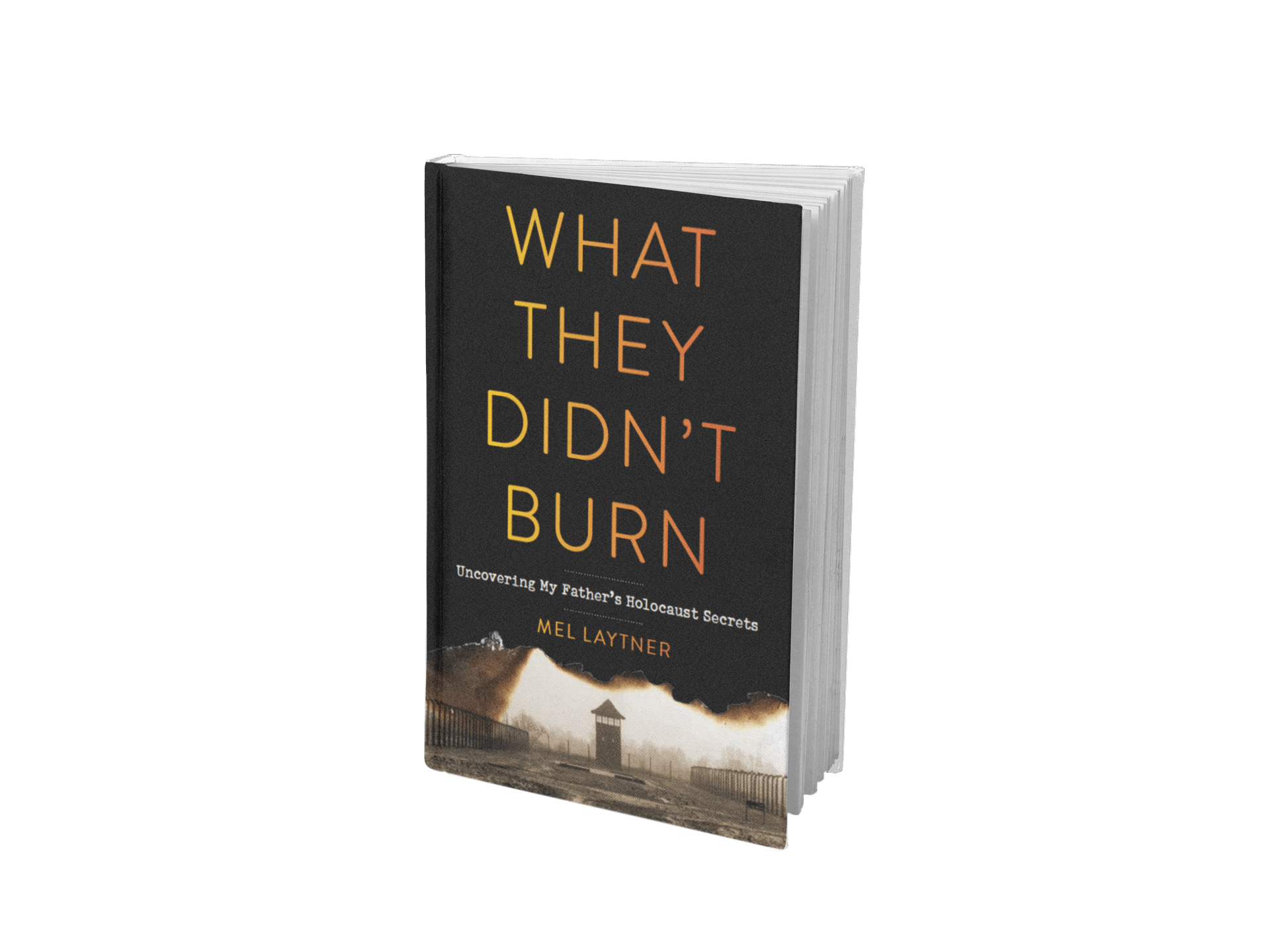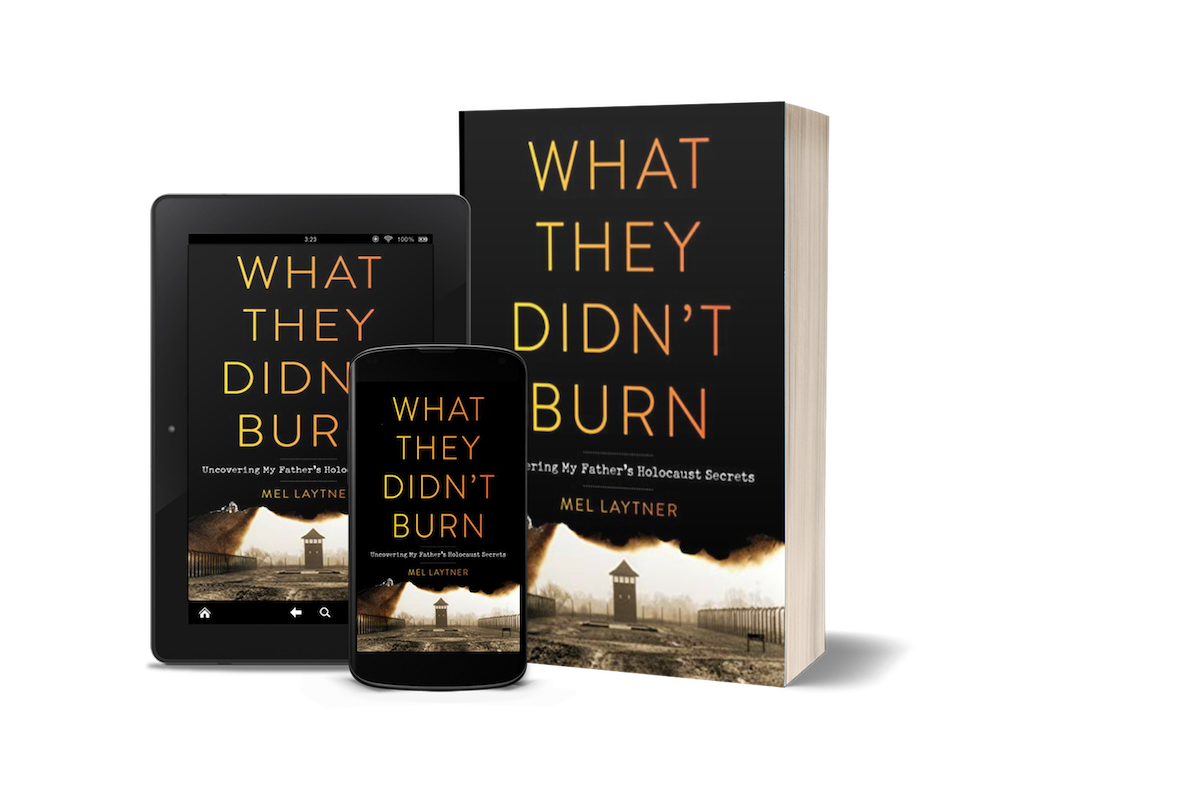Book Club Discussion Guide
WHAT THEY DIDN'T BURN
Author's note...
I wrote this book for your average, educated lay reader who may know something about the Holocaust, but not really much—and doesn’t really care. As a reporter for 20 years, I figured I had a story after spotting my father’s signature on an Auschwitz registration from. When I uncovered the SS report proving his yarn of forged ID cards, foiled escape, British POWs, and the Polish underground, I knew I had a book. To be credible, I also knew it had to be fact-based nonfiction – not an “inspired by” or “based on” historical fiction.
--Mel Laytner
WHAT THEY DIDN'T BURN is a masterful narrative by former journalist Mel Laytner, who embarks on an emotional journey to uncover the hidden truths of his father's Holocaust experiences.
This is no academic tome. Rather, it's a true detective story of black market diamonds, foiled escapes, hidden Nazi documents and the grit, courage and luck it took to survive one of history's darkest periods..
The book is distinguished by its compelling use of a veritable Nazi paper trail that prove the father's more unlikely stories of survival through the war years. Laytner's skillful weaving of these historical artifacts into an engrossing narrative immerses readers in the reality of the era.
Laytner’s evocative and engaging prose captures the emotional gravity of his discoveries while maintaining a sense of hope and perseverance. His writing strikes a delicate balance between historical accuracy and personal reflection, making the book both informative and deeply moving.
What They Didn't Burn
is a testament to the enduring human spirit and the importance of preserving the stories of those who endured the Holocaust.


